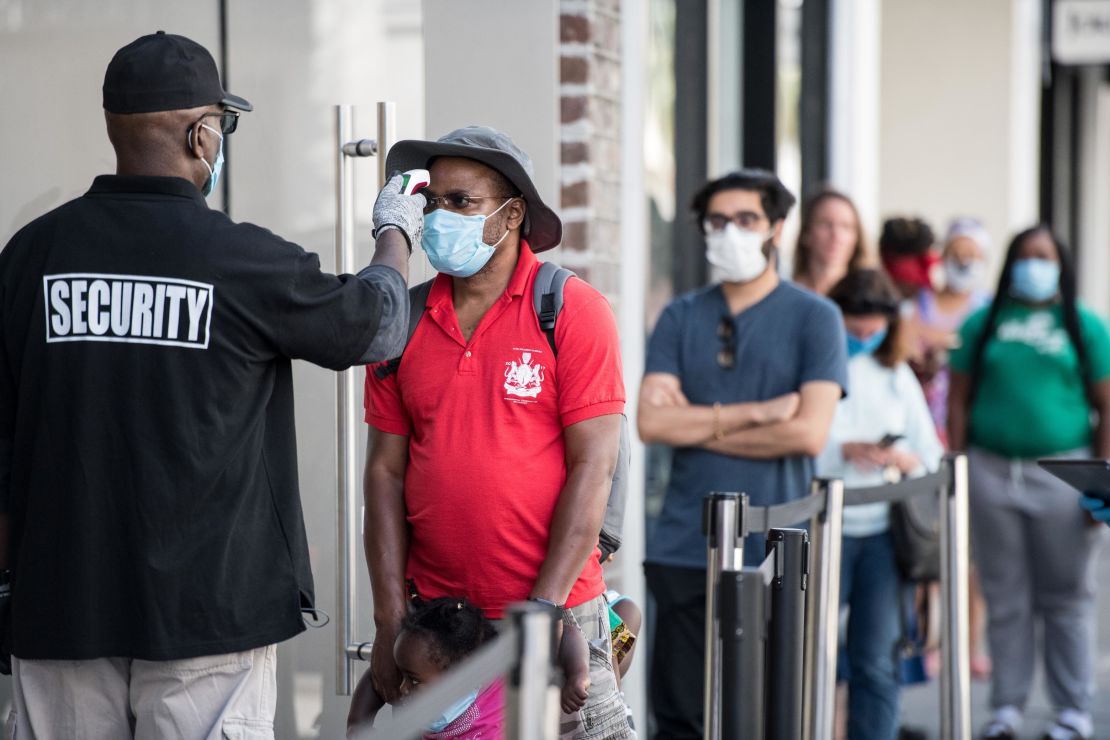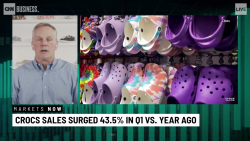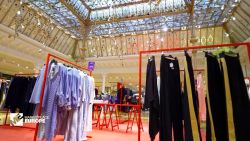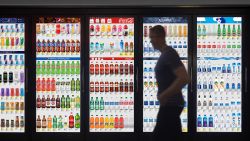Prior to the coronavirus pandemic, security guards were mainly a silent presence in this country’s grocery stores, pharmacies and malls, keeping an eye on potential shoplifters and defusing minor squabbles at the cash register.
But the role now entails more direct intervention with customers and more risks: guards, who are mostly unarmed and don’t have the authority to make arrests, are emerging as the first line of defense against customers who refuse to follow mask and social distancing requirements.
Retail security guards are not typically directly employed by the stores they protect, but rather via third-party contracts with security firms. These firms are now staffing up, with some companies aiming to quickly hire thousands of guards, thanks in part to increased demand.
There have been several instances of violence from customers against security guards for enforcing safety policies. In 2018, 58 security guards and gaming surveillance officers suffered fatal injuries on the job, according to the most recent data from the Bureau of Labor Statistics.
Earlier this month, a security guard at Family Dollar in Flint, Michigan, was shot and killed after he allegedly told a customer at the store to comply with a state-mandated face covering requirement. In a separate incident, a liquor store security guard in the city was allegedly struck multiple times by a customer over the store’s capacity restrictions.
In Van Nuys, California, two customers allegedly attacked a security guard after they were escorted out of a Target store for not wearing face coverings. He suffered a broken arm.
In Flint, a liquor store security guard was allegedly attacked earlier this month after a customer became upset that the guard asked him to wait to enter the store because of capacity restrictions.
“Everything has changed,” said John Schaffer, a security guard at a liquor store in Wilkes Barre, Pennsylvania. Customers are “pissed off at the world. It’s not our fault. We’re just doing a job as best as we can.”
In particular, retailers say they are reluctant to put their store clerks in the position of asking customers to wear a mask to avoid potential confrontations. Mask requirements have become the latest flash point in America’s culture wars.
“Mask enforcement is a real concern for retailers. They can only call the police if a customer gets unruly, and nobody wants it to get to that point,” said Meegan Holland, a representative of the Michigan Retailers Association.
So companies are relying on mostly unarmed contract guards and law enforcement agencies to help uphold state mandates, as well as their own policies.
A Walgreens spokesperson said that the drugstore chain has “added additional security in select markets.” Target has “provided additional payroll hours to security” and increased its off-duty police presence at stores, a representative said. The grocery chain Giant Foods has also added guards: “In late March, as an added precaution, we began working with a third-party provider to bring in security personnel to help maintain a safe environment,” said a spokesperson for Giant.

Schaffer, the liquor store guard, said he is “the front line” protecting the store’s employees.
His store is only open for pickup orders, so he checks customers’ identification when they come to grab their alcohol. Most customers are wearing masks, making it “harder to see if anyone has any bad intentions,” he said.
‘People-friendly way’
Some of the largest security guard firms are hiring to meet the demand from hospitals, big-box stores, grocery stores and pharmacies. Allied Universal said it is hiring 30,000 guards and administrative staff, while Securitas North America wants to hire more than 10,000.
There were 1.1 million security guards in public buildings, stores, offices and casinos in 2018, according to the most recent data from the Bureau of Labor Statistics. Many have a background in law enforcement or the military, retail security experts say. Some are off-duty cops.
Short-term assignments in the pandemic era can pay around $20 an hour, which is higher than the pay in normal times, said Matthew Schwartz, CEO of St. Moritz Security Services, a security guard provider in Pittsburgh, Pennsylvania.
Yet the higher pay comes at a price.
“There’s a lot more pressure” on security guards, said Ben Dugan, president of the Coalition for Law Enforcement and Retail, an association of police and retail security leaders. “They’ve had to learn a whole new way of doing things in a very short time. They have to do it all very delicately and at a distance.”
The virus has forced guards to take on new tasks. Some are monitoring the number of customers allowed inside at a time, controlling waiting lines outside and standing by bags of curbside pickup orders. Others are even checking customers’ temperatures for the first time.
At City Farmers Market in Atlanta, Georgia, guards monitor thermal cameras that have been set up to check customers’ temperatures at the door.
If a customer registers a temperature higher than 100.4 degrees, a guard “discreetly” hands the person a flyer that says “our infrared camera detected a temperature of 100.4°F or higher (which is a sign of fever according to the CDC). For the safety of our community, we kindly ask you to leave our store,” City Farmers representative said.
During the pandemic, retail security experts are encouraging guards to take calm, non-confrontational tones with customers and emphasize how mask policies and others are designed for the safety of all shoppers and employees.
“Ask open-ended questions and avoid directives,” advised Corinne Peek-Asa, associate dean for research at the University of Iowa College of Public Health who studies workplace violence. “Rather than approaching a customer and saying ‘you need to wear a mask,’ instead start with ‘this business has a policy requiring masks. Are you able to get a mask?’”
Gary Weksler, executive vice president of Elite Investigations, a security guard provider in New York, said his firm is training store guards to relay messages to customers in a “polite” and “very people-friendly way.”
If customers do not comply with a policy and a confrontation escalates, guards should get law enforcement involved, he said. “There’s limitations to what a security person can do.”























